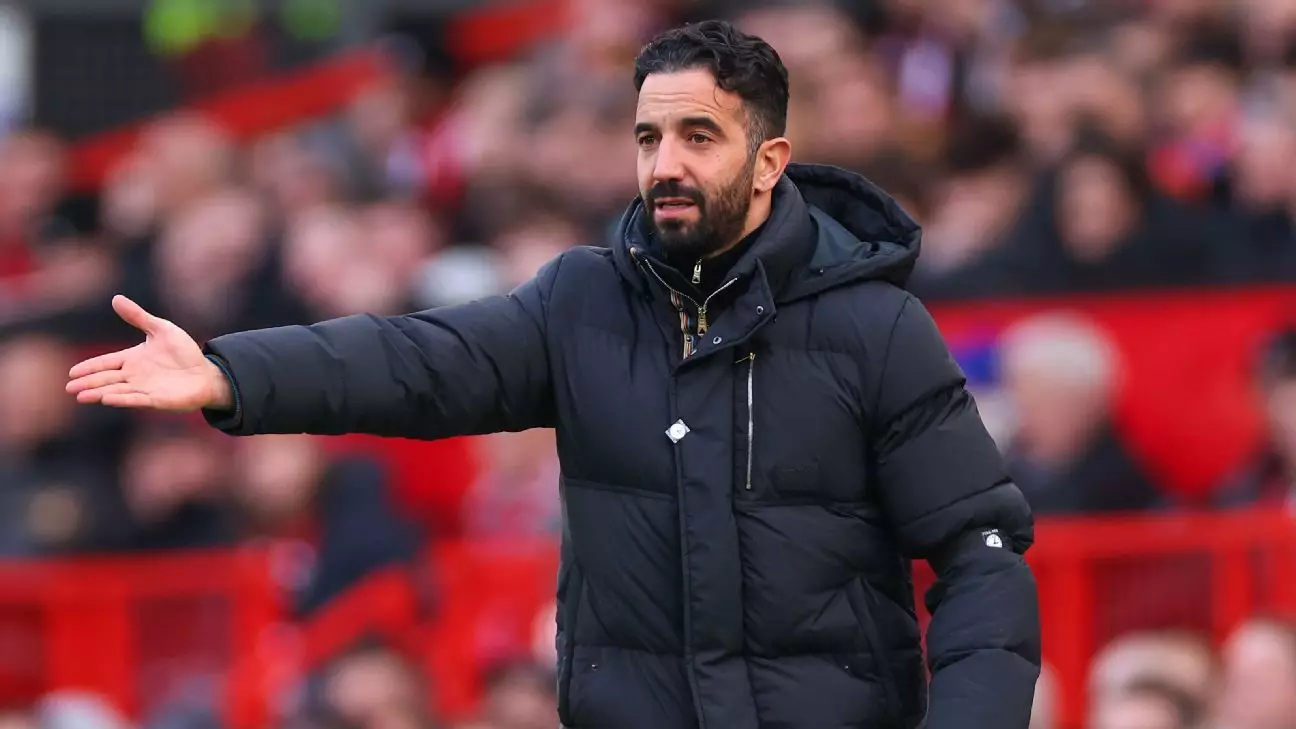As Manchester United continues to grapple with its complex financial landscape, manager Ruben Amorim has articulated a clear message: player departures are a prerequisite for strengthening the squad. The club’s current financial model, particularly in light of stringent Financial Fair Play regulations, imposes significant constraints that Amorim must navigate as he seeks to mold his team effectively. This situation reflects not only the financial realities of modern football but also the broader implications of managerial strategy and future planning at Old Trafford.
The recent January transfer window saw the club facilitating loan agreements for key players like Marcus Rashford, Antony, and Tyrell Malacia. While these loans might provide immediate relief for player salaries and squad balance, they simultaneously raise questions about the club’s long-term strategy. In addition, the recruitment of young talents such as Patrick Dorgu and Ayden Heaven, hailing from Lecce and Arsenal respectively, indicates a potential move toward a youth-centric approach. However, it remains to be seen whether these young players can seamlessly integrate into a high-pressure environment like that of Manchester United.
Amorim’s recognition of the importance of a “strong core” speaks to the heart of team dynamics. The integration of promising talents into a squad lacking experienced leadership can often lead to inconsistencies on the pitch, as highlighted by Dorgu’s early nervousness. Future successes will likely rely not just on the acquisition of fresh talent but also on establishing a robust backbone within the team that can handle the unique pressures of competing at the top level.
Sources have revealed that Manchester United may need to conduct further staff reductions in pursuit of financial stability. To date, more than 250 employees have faced redundancy since Sir Jim Ratcliffe took charge of football operations almost a year ago. Amorim commented on the long-standing nature of these financial problems, implicitly acknowledging that addressing the club’s economic challenges is as crucial as improving on-field performances. As he stated, “I have to understand all these problems but that problem of our club is not new.” This reflection reminds us that the pressures affecting the club extend beyond mere results on the pitch.
The impending alterations in staffing could imply a deeper reckoning within the club, forcing management to revisit how resources are allocated, both on the field and in the boardroom. As the club looks to align its ambitions with financial realities, critical questions emerge regarding the balance between nurturing young talent and fielding a competitive squad capable of contending for titles.
With a pivotal clash against Tottenham looming, Amorim’s focus must remain on immediate challenges while simultaneously planning for the future. He remains optimistic despite the hurdles, advocating for the development of a talent-rich team while maintaining competitive standards. The players who are currently on loan have shown glimpses of promise at their respective clubs, but their eventual return could present both opportunities and challenges.
Amorim’s comments emphasize the necessity for patience as the club undergoes structural reforms. Only time will reveal whether this strategic approach will yield results. The ultimate test will be whether Manchester United can cultivate a squad that not only adheres to its financial obligations but also competes at the highest levels of the game, regaining the stature that fans and players alike dearly crave.

